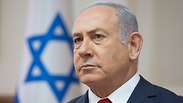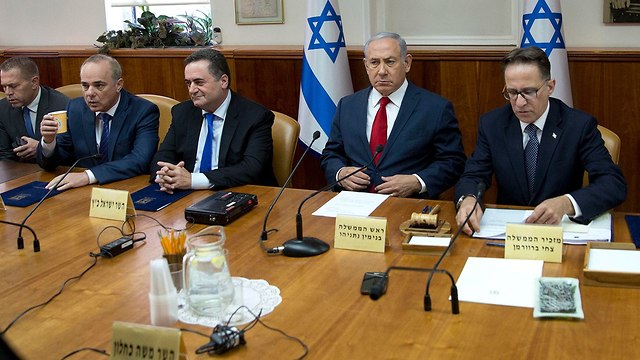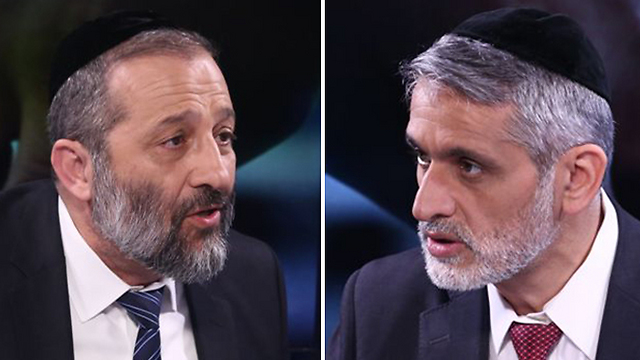

Netanyahu moots lowering the electoral threshold
As IDF draft law threatens to dismantle government and bring country into early elections, PM tells coalition leaders he is considering lowering threshold by half a percent in move that is likely intended to ensure that small right-wing parties can rejoin his coalition in event of Likud electoral victory; Right-wing parties, however, reject idea.
Prime Minister Benjamin Netanyahu said on Sunday that he is considering reducing the electoral threshold for political parties to enter the Knesset by half a percent, in what is likely a move aimed at ensuring that his Likud party's natural allies on the Right gain enough votes to join a coalition government following next year's election.
Netanyahu told his coalition partners that the move must be carried out with the consent of all the coalition parties. "Without a consensus, we will not be able to move forward on this issue."
The prime minister's remarks were made against the background of the draft law coalition crisis which still presents a threat to the stability of the current coalition.
Political sources familiar with the matter said that Netanyahu has been examining the initiative in recent weeks in light of the possibility of early elections.
The prime minister fears that some of his natural coalition partners may not garner enough votes to cross the electoral threshold in the elections, and therefore mooted the possibility of reducing it.
According to the sources, Netanyahu is concerned about the fate of the ultra-Orthodox Shas party and center-right Yisrael Beytenu party, which in the event of any further weakening of their electoral strength, may not receive a sufficient number of votes to enter the Knesset.
In the eventuality of a Likud victory and a further erosion of public support for the two parties—both of which serve in his coalition—Netanyahu would be deprived of the opportunity to incorporate them into his government, thererby forcing him to turn to other leftist and centrist parties to cobble together a coalition.
Despite the advantage gained for the smaller parties, most party leaders still oppose the move. For example, Shas leader Aryeh Deri will probably not support lowering the threshold in order to avoid increasing the chances of a Knesset entry by his political rival, Eli Yishai, who used to lead Shas before forming his own Yachad party.
Bayit Yehudi Chairman Naftali Bennett also expressed his opposition to the initiative, fearing the rise of new right-wing parties that would gobble up members of his support base and reduce his own chances of crossing the threshold necessary to re-enter the Knesset.
The Yahadut Hatorah faction of United Torah Judaism is also unlikely to support the move.
During the previous Knesset term, Yisrael Beytenu fought to raise the threshold, among other things, in order to block Arab parties or make it more difficult for them to enter the Knesset. As a result, the three Arab parties were forced to unite under a borader coalition that became known as the Joint List which is now represented in the Knesset.

















